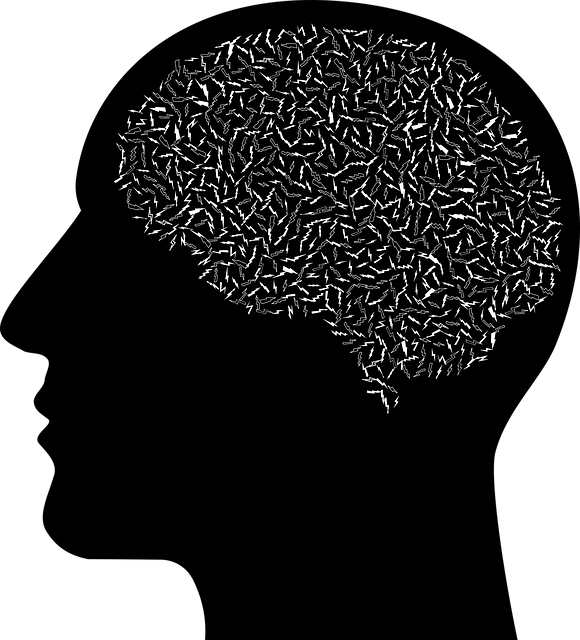Substance abuse is fueled by stress, trauma, and mental health disorders like OCD. Effective risk reduction strategies include specialized therapy addressing OCD and addiction, creative outlets, CBT, stress reduction techniques, public awareness campaigns, lifestyle changes, mindfulness exercises, and advocacy for accessible mental health resources. Integrating Therapy for Obsessive Compulsive Disorder (OCD) techniques is crucial for long-term management, helping individuals manage intrusive thoughts, address triggers, adopt healthier coping mechanisms, and reduce reliance on substances.
Substance abuse poses significant risks, impacting physical and mental health, relationships, and overall well-being. This article explores comprehensive risk reduction strategies tailored to address substance abuse head-on. We delve into understanding the disorder and its dangers, examining therapeutic approaches ranging from cognitive-behavioral therapy to support systems that foster positive lifestyle changes. Additionally, long-term management tactics and relapse prevention methods are highlighted, offering a holistic approach to recovery, mirroring effective Therapy for Obsessive Compulsive Disorder (OCD), which emphasizes structured, evidence-based interventions.
- Understanding Substance Abuse and Its Risks
- Therapeutic Approaches for Risk Reduction
- Lifestyle Changes and Support Systems
- Long-term Management and Relapse Prevention Strategies
Understanding Substance Abuse and Its Risks

Substance abuse refers to the harmful use of drugs or alcohol, leading to negative consequences for an individual’s health and life. It’s a complex issue that can stem from various factors, including stress, trauma, mental health disorders like Obsessive Compulsive Disorder (OCD), or environmental influences. Understanding these underlying causes is crucial in developing effective risk reduction strategies. OCD, for instance, often drives individuals to engage in substance abuse as a coping mechanism, highlighting the importance of addressing both the addiction and any co-occurring mental health conditions through specialized therapy.
Promoting emotional well-being and employing stress reduction methods can significantly contribute to mitigating the risks associated with substance abuse. Techniques such as cognitive behavioral therapy, mindfulness practices, and engaging in meaningful social connections have proven effective in preventing relapse and fostering mental wellness. Additionally, exploring creative outlets like art therapy or participating in a Mental Wellness Podcast Series Production can offer alternative avenues for coping with difficult emotions, enhancing overall resilience.
Therapeutic Approaches for Risk Reduction

Therapeutic approaches play a pivotal role in risk reduction strategies for substance abuse. One such effective method is therapy for Obsessive Compulsive Disorder (OCD), which, when tailored to individual needs, can significantly lower vulnerability to substance misuse. OCD therapy focuses on challenging and modifying unhealthy thought patterns and behaviors associated with excessive substance use or abuse. Cognitive Behavioral Therapy (CBT), a well-established approach, helps individuals recognize and change unhelpful thoughts and actions, fostering healthier coping mechanisms.
Integrating stress reduction methods within these therapeutic frameworks is crucial. Public awareness campaigns development and trauma support services can further enhance risk reduction efforts by promoting mental health literacy and providing additional resources for those struggling with substance abuse issues or underlying traumatic experiences. By combining specialized therapy, stress management techniques, and access to supportive services, individuals can effectively navigate their recovery journey and minimize the chances of substance misuse.
Lifestyle Changes and Support Systems

Lifestyle changes and a strong support system are pivotal components in reducing risks associated with substance abuse. Encouraging individuals to engage in regular physical activity, maintain a balanced diet, and prioritize adequate sleep can significantly contribute to mental wellness. These simple yet effective habits not only boost overall health but also serve as coping mechanisms against cravings and triggers.
Incorporating self-awareness exercises into daily routines can be transformative. Practices such as meditation, mindfulness, and therapy for Obsessive Compulsive Disorder (OCD) foster a deeper understanding of one’s thoughts and emotions. This heightened self-awareness enables individuals to recognize early warning signs of potential substance abuse relapses, allowing them to seek timely intervention or support from their networks. Mental Health Policy Analysis and Advocacy play a crucial role in ensuring accessible resources for such practices and fostering communities that prioritize mental health.
Long-term Management and Relapse Prevention Strategies

Long-term management of substance abuse involves a comprehensive approach to ensure sustained recovery. Beyond initial treatment and detoxification, individuals often require ongoing support to prevent relapse. One effective strategy is integrating Therapy for Obsessive Compulsive Disorder (OCD) techniques into their recovery plan. OCD therapy focuses on understanding and managing intrusive thoughts and behaviors, which can be highly relevant for substance abuse recovery. By learning communication strategies to address triggers and cravings, individuals develop healthier coping mechanisms.
Mindfulness Meditation and Stress Management techniques are also valuable tools in long-term risk reduction. Regular practice of mindfulness meditation helps individuals stay present, enhance self-awareness, and cultivate a non-judgmental perspective towards their thoughts and emotions. Effective stress management reduces the likelihood of turning to substances as a coping mechanism. These strategies, combined with regular check-ins with support groups or therapists, provide a robust framework for long-term recovery and relapse prevention.
Substance abuse poses significant risks, but with a multi-faceted approach, individuals can effectively reduce these dangers. By combining therapeutic interventions like those used in Therapy for Obsessive Compulsive Disorder (OCD), lifestyle adjustments, and robust support networks, people can manage addiction and prevent relapse. Long-term strategies that focus on continuous care and coping mechanisms empower individuals to lead healthier, more fulfilling lives free from substance abuse’s grasp.












